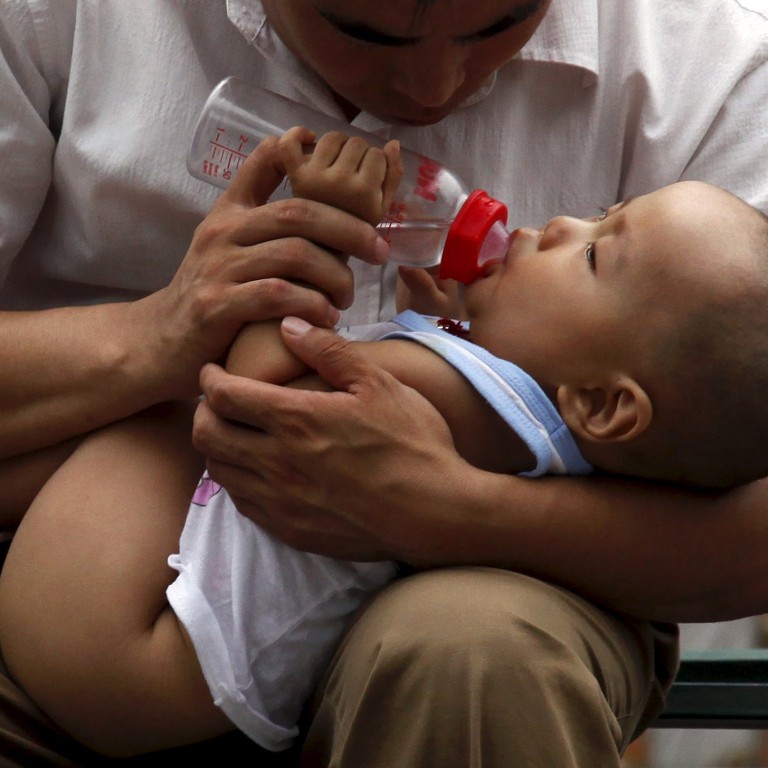
Baby stocks surge on end to one-child rule
Investors rushed yesterday to snap up baby-related stocks after the mainland decided to allow all couples to have two children for first time in 35 years.
Analysts said the policy change could lead to millions more births every year and have far-reaching implications on various sectors, including baby product manufacturing, health care and the car industry.
Baby-related stocks surged on both the Hong Kong and mainland markets after the Communist Party announced plans to end the one-child policy, which has prohibited most couples from having more than one child since the 1980s.
"China's decision to replace the 35-year-old one-child policy with a two-child policy prompted investors to snap up any shares relating to babies - from diapers and body-care products to baby food and infant milk formula," IG Group analyst Bernard Aw said.
In Hong Kong, the biggest gainer of the day was China Child Care Corporation, which makes body- and hair-care products for children. Its share price rose 40 per cent to HK$10.05.
Stocks of makers of milk and infant formula, diapers, toys and clothes recorded broad-based gains.
Children's apparel brand Miko International rose 16.4 per cent to HK$0.71, milk powder producer Yashili International rallied 6.3 per cent to HK$2.21, and infant formula maker Biostime International jumped 5.1 per cent to HK$17.28.
Among the index components, dairy firm China Mengniu climbed 3.4 per cent to HK$15.06, making it the top blue-chip outperformer, and diaper manufacturer Hengan International snagged a 2 per cent gain.
On the mainland, several baby-related stocks rose by the 10 per cent daily limit, including Beingmate Baby and Child Food, milk-product maker Xinjiang Western Animal Husbandry, and infant-clothes maker Jinfa Labi Maternity and Baby Articles.
But IG Group's Aw cautioned that the rush for baby-related stocks might not necessarily "bear fruit" because there was no timeline for the policy change and it was not clear how many additional births it would lead to.
Analysts said the policy change might not provide a major boost to the economy in the short term but they still expected various industries to benefit from the population increase.
Credit Suisse analysts forecast the relaxation to result in up to six million extra births per year in the five years from 2017, an increase of up to a third on the 16.5 million children born each year.
For the most directly related consumer sectors, baby formula, diapers, medication, kids wear and appliance manufacturers could see a retail sale increase.
Assuming the cost of raising a child is 40,000 yuan (HK$48,700) a year, additional consumption could amount to 120 million to 240 billion yuan per year starting from 2017, analysts from Credit Suisse estimated.
Citic Securities analysts said greater consumption demand might also stoke investment opportunities in culture, health care, entertainment, and media industries, with possible beneficiaries including maternal-health-care product suppliers and preschool education and training institutions. Education products and book sellers, toy and game producers as well as animation production companies could also be winners, the analysts said.
Some other analysts even predicted that the anticipated baby increase may also fuel needs for larger family cars.
Huatai Securities said seven-seat SUV and multi-purpose vehicle makers could see increasing demand as the size of families grew on the mainland.

